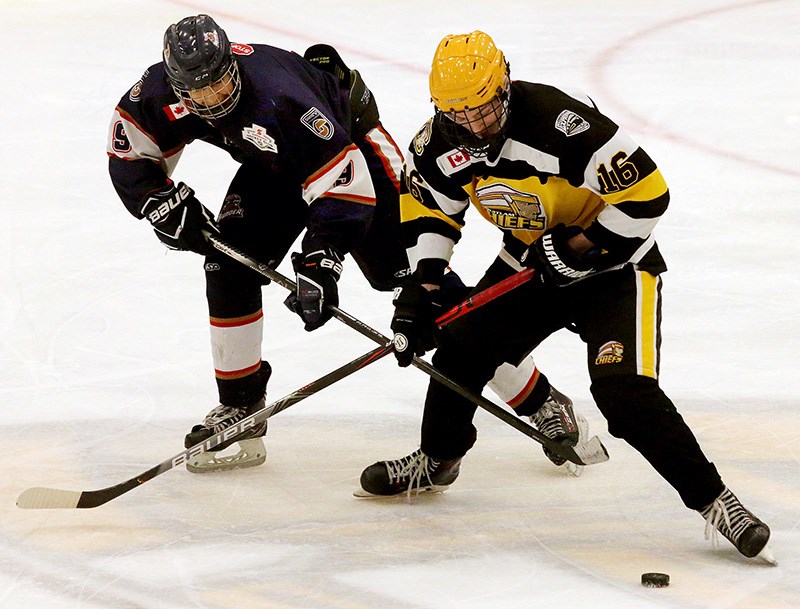The Coquitlam Chiefs are no more.
The city’s minor hockey association has retired its name and logo, a stylized profile of a First Nations person in a long, feathered headdress.
COQMHA secretary Debra Harper said the executive board decided it’s time the association transition to “new branding which will better reflect the values of our membership and the community we serve.”
She said Coquitlam Minor Hockey will form a committee that will spend up to a year engaging with members and the community to help it forge a new identity.
Cultural appropriation and iconography with racist undertones has been a growing issue in North American sports. The National Football League team in Washington, D.C., recently dropped its longtime Redskins nickname and the Cleveland Indians baseball team has launched a formal review of its moniker.
Locally, sports teams at Simon Fraser University will no longer be called the Clan because of its phonic resemblance to the Klu Klux Klan, a racist organization that targets African-Americans.
But the president of Coquitlam Minor Lacrosse said his group remains committed to its logo of a First Nations woman carrying a baby on her back, both wielding lacrosse sticks.
Garrett Ungaro said the logo, which is also used by the Coquitlam Adanacs of the Western Lacrosse Association and the city's junior team that’s part of the BC Junior Lacrosse League, was actually designed by a First Nations artist and is symbolic of the sport’s origins and a culture that gifts a lacrosse stick to every newborn.
“It’s to honour the heritage of the game,” he said.
Ungaro, who has First Nations heritage himself, said his organization checks in regularly with the local Kwikwetlem First Nation to ensure they’re still comfortable with the logo. But, he conceded, the association could do more to educate others about its meaning and significance.
“There has been some concern about wearing the logo and promoting insensitive material,” Ungaro said, adding coaches are encouraged to talk about its significance as part of a discussion with players about the importance of inclusion.
“It’s all very informal, but we are going to work on doing more,” he said.



